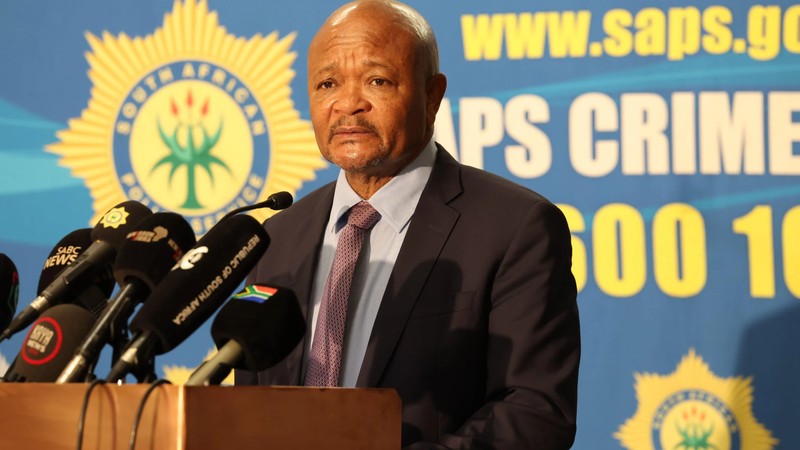MKP vs Ramaphosa: Judgment reserved in challenge over police minister appointments
Judgment has been reserved in the Constitutional Court matter between the uMkhonto weSizwe Party (MKP) and President Cyril Ramaphosa over the suspension of Police Minister Senzo Mchunu and the appointment of Firoz Cachalia in an acting position.
Central to the case are questions about the limits of presidential power, the legality of acting appointments and whether Ramaphosa acted rationally when he established a judicial commission of inquiry into serious allegations of criminal infiltration of law enforcement agencies.
On Wednesday, during the proceedings brought on an urgent basis by the MKP, lawyers representing the party argued that Ramaphosa has no right to appoint more than one minister of police at the same time after Ramaphosa chose to suspend rather than dismiss Mchunu and only rehire him once he has been cleared by the upcoming Commission of Inquiry set up to investigate alleged corruption within the criminal justice system.
Ramaphosa placed Mchunu on special leave after serious allegations by KwaZulu-Natal police commissioner Nhlanhla Mkhwanazi that he colluded with a criminal syndicate, accepted illicit payments, interfered in investigations and disbanded a specialised task force into political killings.
The MKP wants Mchunu fired, while also contesting the appointment of Firoz Cachalia as acting police minister.
MKP legal counsel, Mpati Qofa-Lebakeng, argued that the country’s ailing economy cannot afford to have more than one minister and two acting ministers at the same time.
“We have dealt with cost implications related to three ministers of police and two deputy ministers. We are saying in the context of an economy like ours, there is no rational decision that would warrant the President having three Ministers of Police in his Cabinet. The cost implication does not limit itself only to the Minister of police’s portfolio. It also goes to the second leg of costs that are occasioned by the establishment of the Commission of Inquiry. We are saying, just on that point alone, there is no way that the cost would be justifiable when the President has taken the decision which has already been alluded to,” she argued.
Also, arguing on behalf of the MK Party, Dali Mpofu stated that no President could appoint a minister from outside those who are already in Cabinet.
“I think we agree that no President in his right mind would appoint an acting minister of police from outside the Cabinet. We can agree that it is wrong,” Mpofu said.
Anton Katz, also on behalf of the MKP argued that Chapter 5 of the Constitution grants no power to suspend, only to appoint or dismiss, saying there was nothing in between.
“There is no vacancy when it comes to ministers, and for this purpose, I want to refer you to Chapter 5 of the Constitution. This part of the Constitution, its wording, content, and purpose, tells us one thing and one thing only: that there is no power to suspend. It is to appoint, dismiss, and nothing in between,” he stated.
Kate Hofmeyer, arguing for Ramaphosa, said that the Constitutional Court is the last court of resort, arguing that the MKP had abused the process when it approached the highest court in the land to argue this matter on an urgent basis.
She also added that the powers to assign and appoint ministers also lie with the President, who has done right by the Constitution in this regard.
“Former Chief Justice Mogoeng Mogoeng spoke out about the monopoly of this court. This court must be concerned about taking this matter. The President has both the powers and an obligation, and he has the right to exercise these powers subject to the strictures of the law,” she argued.
Advocate Griffiths Madonsela, arguing for Mchunu, described Mchunu as being ‘ambushed’ by Mkhwanazi’s accusations and said the MKP’s response to these allegations was to ‘draw their spears’ and to ‘crucify him’.
siyabonga.sithole@inl.co.za

